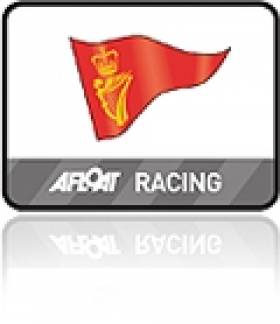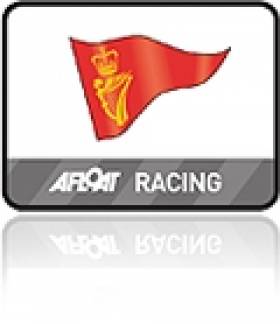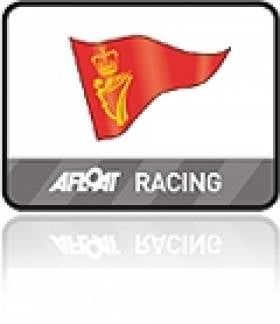Displaying items by tag: O'Flynn Exhams
Latest Photos From Royal Cork's October League
Bob Bateman's latest photos from yesterday's Royal Cork's October League are over the fold. Having sailed six races in the O'Flynn Exhams Autumn League and, with a discard applied, a trend is emerging writes Claire Bateman. The exception to this is White Sail 1 and 2 who have had four races and at the wish of the classes have reverted to two races each day. It was another light day with yachts waiting patiently for the breeze to fill and when it did it was a light breeze from the west going further into the south as the day went on. Richard Leonard's Green Fleet were on a laid course outside the harbour and having postponed the first race during the start sequence, he eventually got the fleet going when the west breeze settled. Class Three and White Sail 1 were started together followed by Class Four and White Sail 2. The mixing of classes made for interesting racing as it kept the boats in close proximity to one another and a second race was sailed successfully thereafter.
On David O'Brien's harbour course with the Red Fleet the breeze was slower to fill in. However, when it did Class 2 and the 1720s were sent on a course to Ringabella against the flood tide. The Class Zero and Class One fleets were over eager and suffered a general recall so they started last. Again they were over anxious and were bunched at the pin end of the line but after some manoeuvering a clear start was called and they too set off for Ringabella, the boats heading for the western shore to avoid the tide faring best. First to reach Ringabella was Jump Juice but she obviously didn't feel like leaving as she clung to the mark having to suffer the fate of watching many of the class rounding before she eventually got free. In Class One IRC Donal O'Leary's D-Tox is on 7 points but David Scott's EOS is on 20 points with Michael Wallace just one point adrift on Felix.
The position in Class Three IRC appears to be the most obvious with the prowling Kenefick/O'Brien Tiger leading with five first places followed by Ian Traver's Bandit on 9 points and in Class Zero IRC the same equally obvious situation pertains with Kieran Twomey's Gloves Off on 5 points and Conor Phelan's Jump Juice on 9 points. In Class Four IRC Mike Sexton's Granny Knot and Alan Mulcahy's Sundancer are tied on 7 points each.
This league is also counting for the SCORA 2010 League as is the April league from Kinsale a total of fifteen races overall with three discards so this also adding spice and competition to the event.
To-day's day prizes were presented by Eamonn Muldoon of O'Flynn Exham's and racing will continue next Sunday with first gun at 10.55 am.
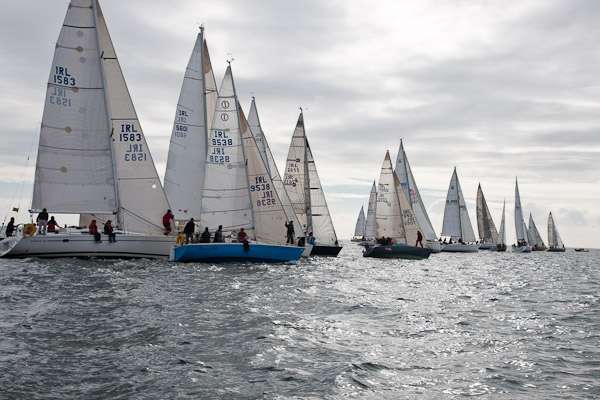
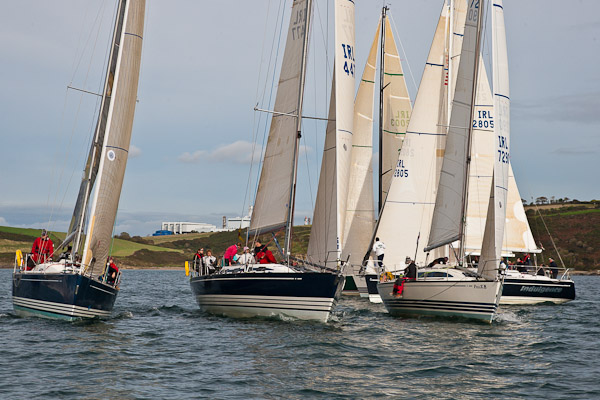
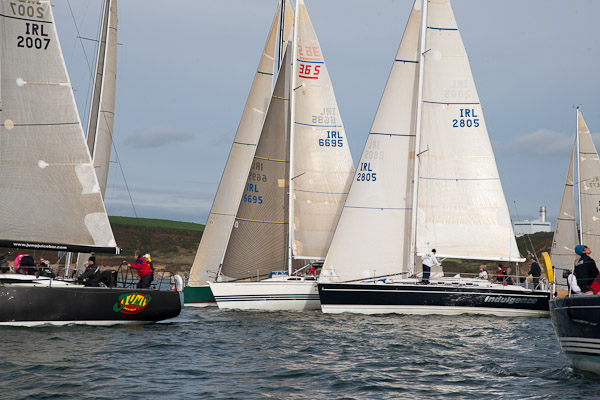
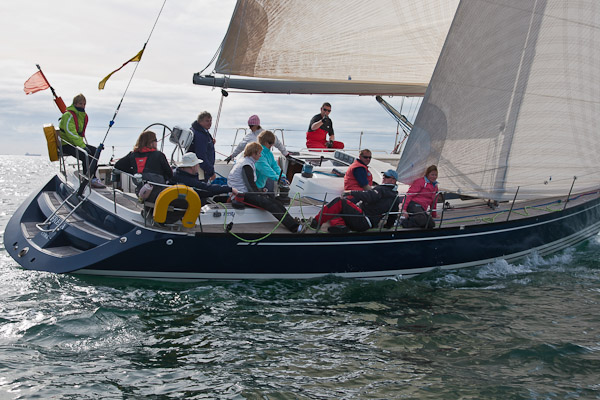
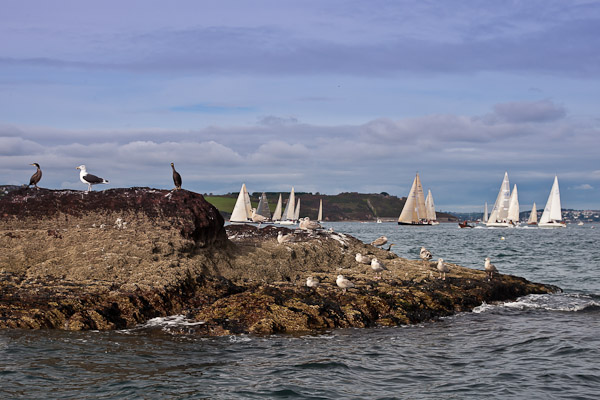
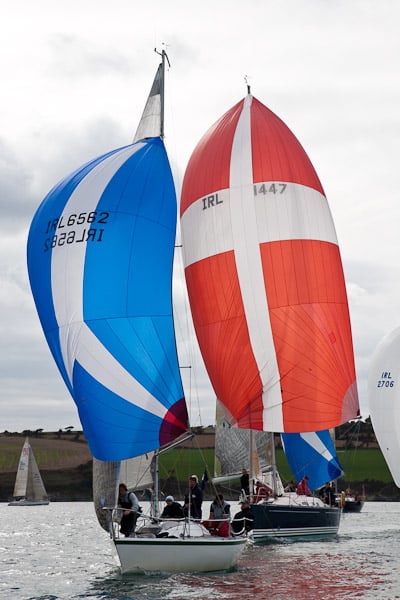
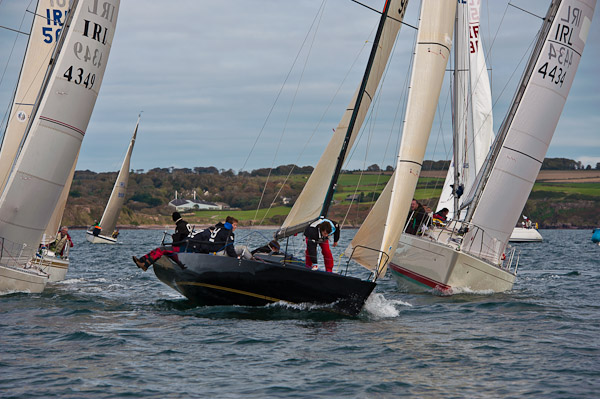
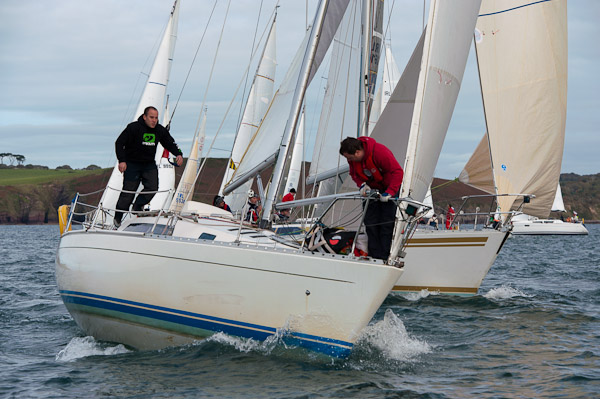
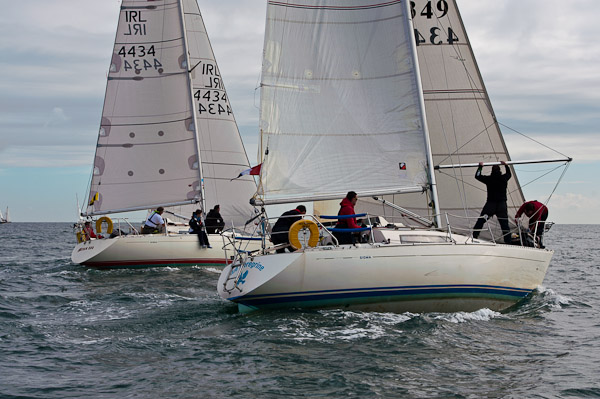
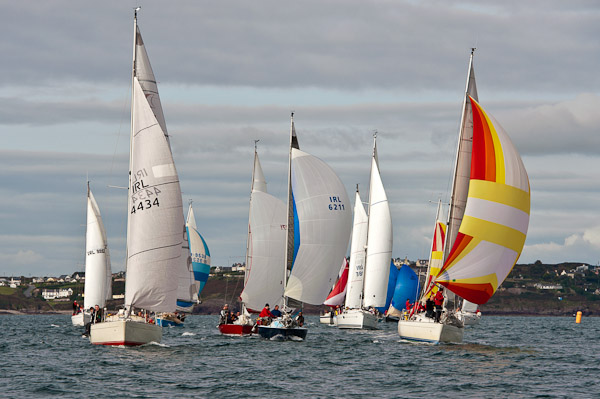
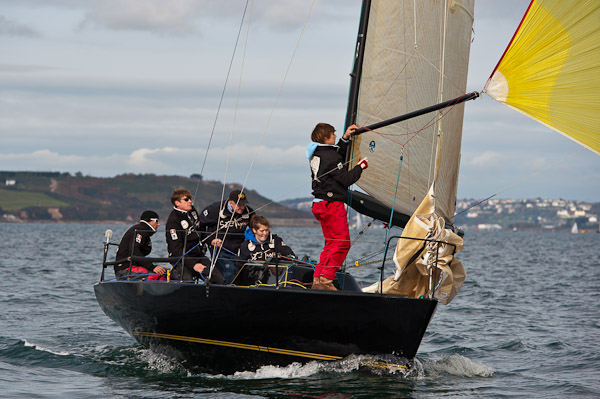
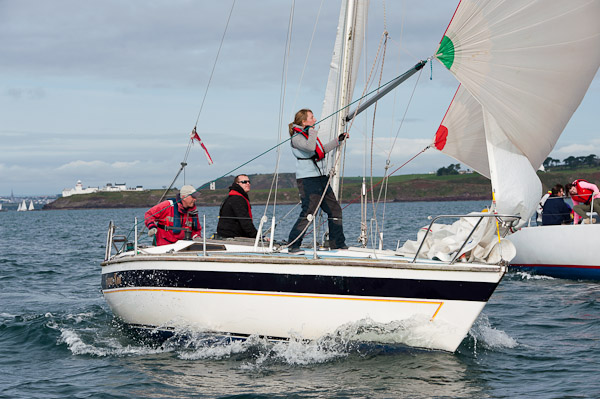
80 Boats for Royal Cork Autumn League (PHOTOS HERE!)
An 80 boat fleet set sail for the opening day of the Autumn League at the Royal Cork Yacht Club Regatta today writes Claire Bateman.
While conditions setting out were typical of a lovely Autumn day, the wind, however, was to prove fickle going up and down changing direction. As a consequence of this Race Officer David O'Brien with the Red fleet made up a course to suit the conditions and Race Officer Richard Leonard brought the Green fleet to the Eastern bank where they were to sail a laid course. The Whitesail fleets sailed an extra leg to their race as they have decided to have only one race each day.
The Red fleet started their first race at Whitebay and went to a laid mark on the eastern shore before spinnkaers were hoisted to be dropped shortly afterwards as they headed for OFE 2 before fetching across to Ringabella and running in to a finish at no. 5. Race 2 saw a beat out to W2 for Classes Zero, One and 1720s and a run back to No.11 where the course was shortened. Shortly after the start of the race a shower came and with it some wind but when the rain stopped the wind died resulting in the shortening of the course. Class 2 were also given a beat out to W2 but they were given a shorter course finishing at No. 7.
As usual we had welcome visitors from Kinsale, Dungarvan, Waterford and Cobh participating. It was good to see Jump Juice back in the water as it also was to see Indulgence back in action again. And perhaps best of all was to see a resurgence of 1720s back on their home waters in Cork Harbour.
Prize giving took place immediately after racing and the prizes were distributed by Irene O'Donovan a Partner in the sponsor firm of O'Flynn Exhams Solicitors.
Racing will continue next Sunday with first gun at 10.55am.
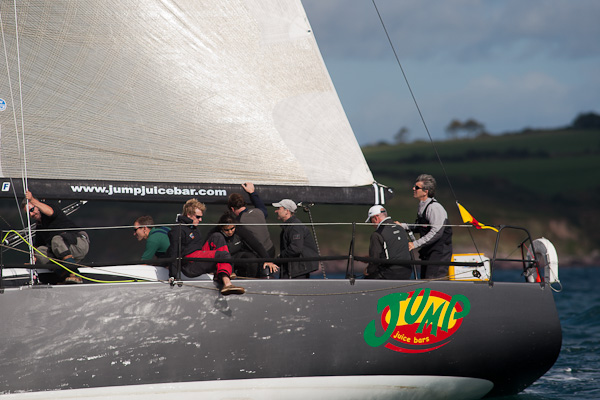
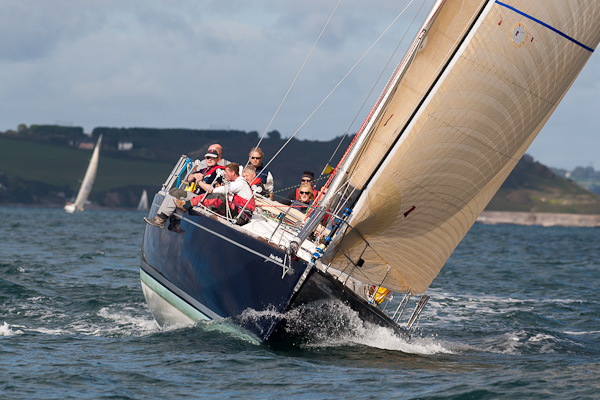
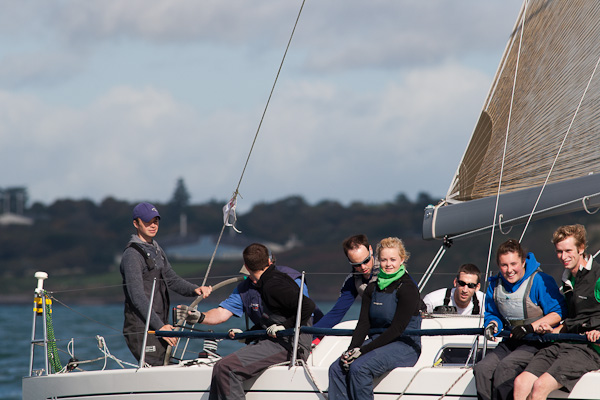
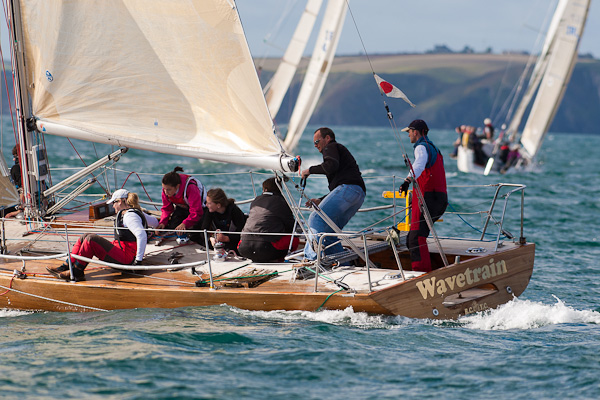
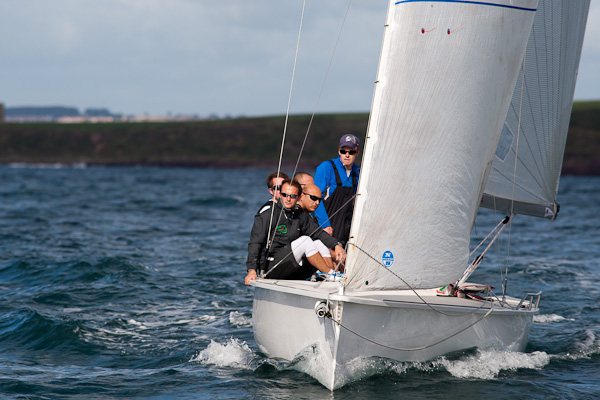
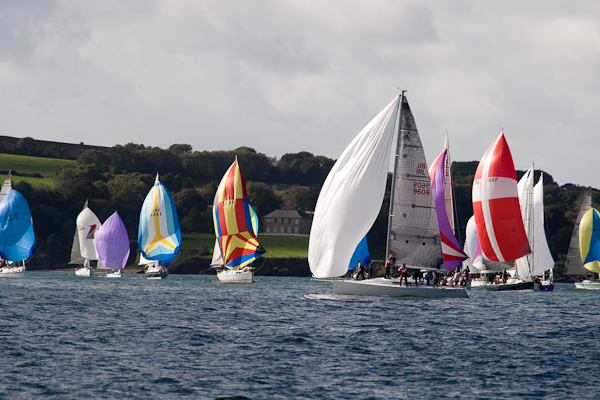
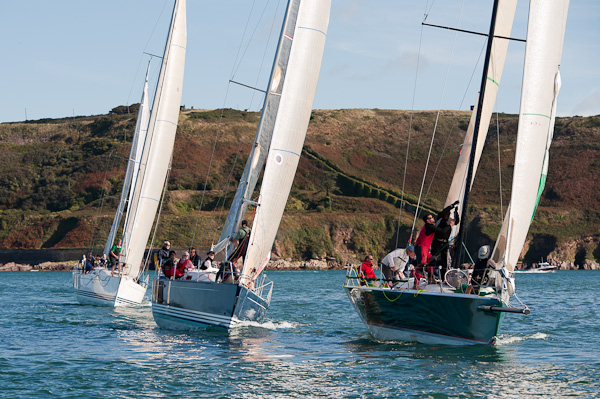
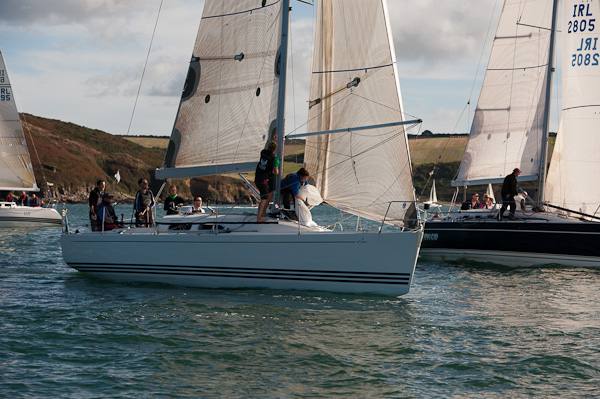
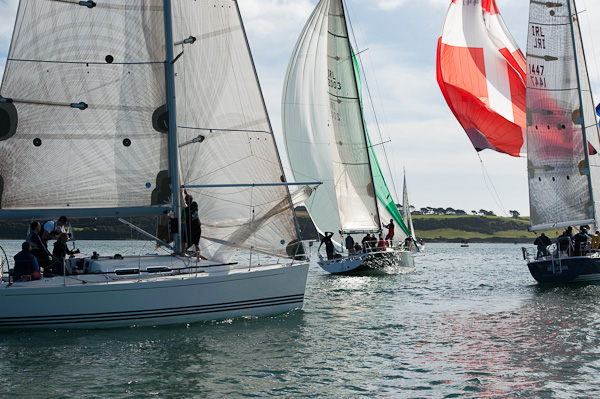
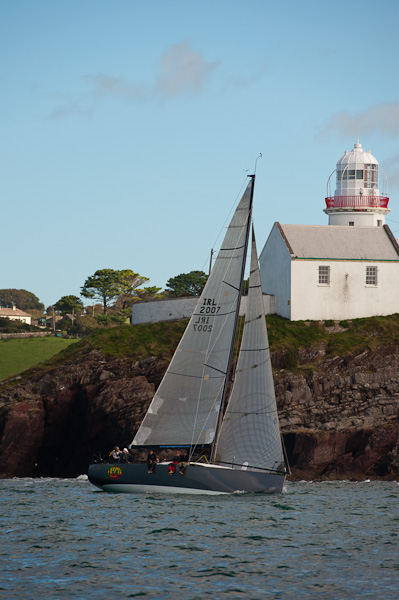
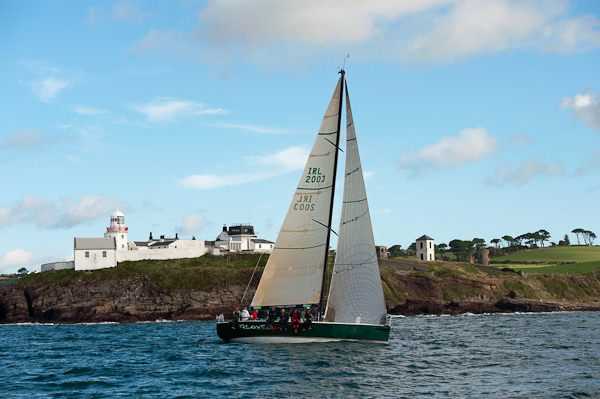
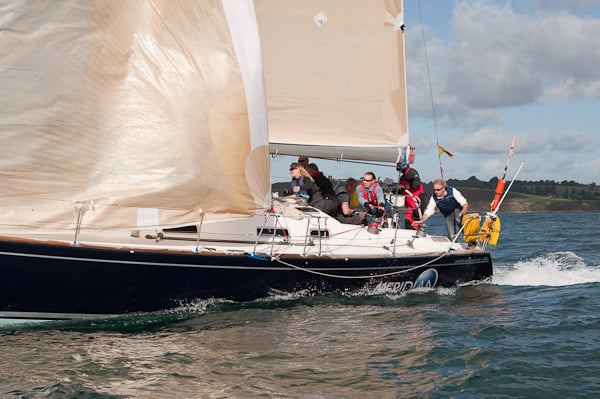
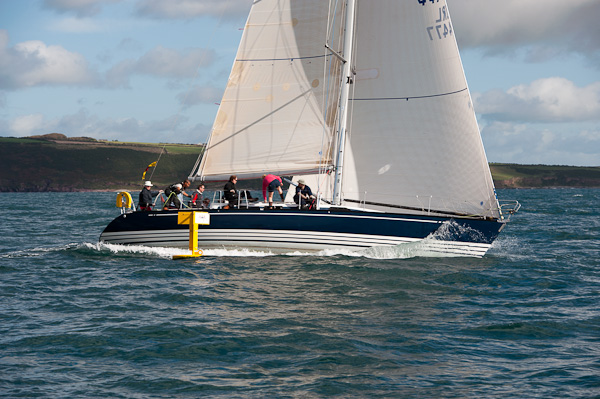
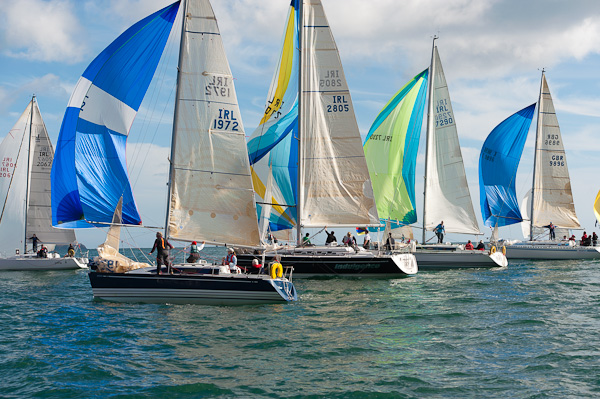
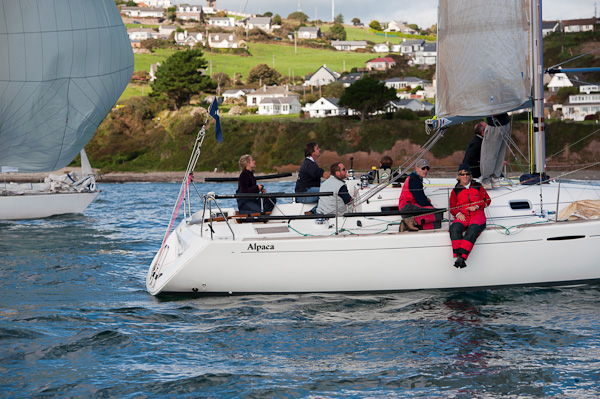
First Race Results on Royal Cork Site HERE
More Bob Bateman Photos on the Gallery HERE
Royal Cork Autumn League Notice Of Race is Published
The Notice of Race (NOR) for the O'Flynn Exhams sponsored Autumn Regatta at the Royal Cork Yacht Club is now available to download below. The Regatta will commence on Sunday, October 3rd and will continue the exciting format that was used for the first time last year. The dates for the races are October 3rd, 10th, 17th, 24th & 30th. Entry form and NOR downloadable below.



























